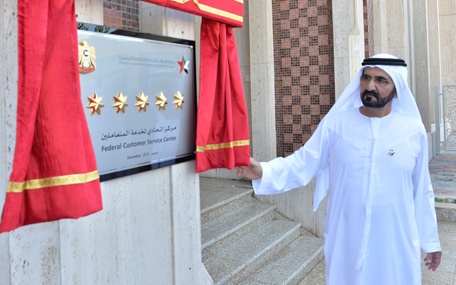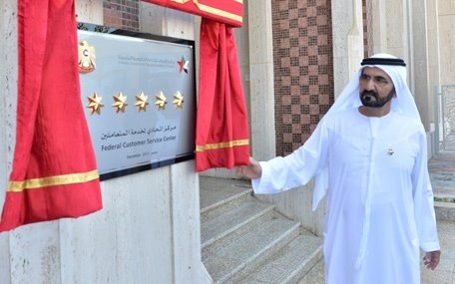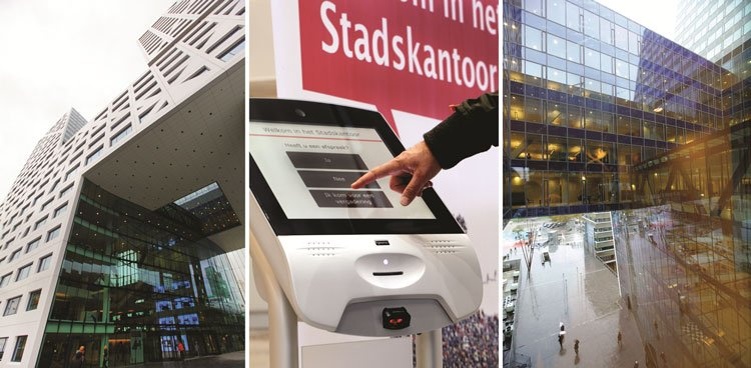- Blog Overview
- Knowledge
- How to transform the citizen experience in the digital age

How to transform the citizen experience in the digital age
Sven-Olof Husmark |February 5 2015 | 7 min
Governments in countries all over the globe are put in front of great challenges on how to deliver services to their citizens in an effective and efficient way. In the age of the customer, the power has shifted from the service provider to the customer.
Empowered citizens increasingly demand more government transparency, increased operational efficiency, and better government service delivery. And an aging population drives the need for changes in the way services will be provided in the future, forcing public institutions to be more innovative than today.Smart Government on the rise
Forward thinking Governments are meeting these new challenges by implementing various initiatives under “Smart Government” programs and projects. Often these programs contain implementation of technology used to enhance government performance by strengthening efforts to reduce bureaucracy, enhance service delivery, and fuel innovation.

Sheikh Hamdan bin Mohammed Bin Rashid Al Maktoum, Crown Prince of Dubai and Chairman of the Executive Council of Dubai, commissioned the launch of the Star Rating System for all service delivery channels in the Government of Dubai.
A successful example of a Smart Government initiative is the Government of Dubai. Experts and policymakers described the UAE’s experience with “smart government” as one of the most successful implementations of the technology in the world in comments made during the Summit on the Global Agenda held in Dubai in November 2014. To support the program a Star Rating System for all service delivery channels in the Government of Dubai, including call centers, websites, smart applications, as well as customer service centers has been implemented. The rating system is used to determine the level of all service delivery channels used by the Dubai customers through assessment and classification of not only service centers, but surpassing that to other service delivery channels.
The system also aims to stimulate positive competition between service providers in order to improve public services in Dubai to unprecedented levels and deliver exceptional customer experiences.

Understanding and managing the customer journey is key in delivering improved customer experience in the public sector.
Implementing innovative customer journey management solutions to improve service and enhance the experience can have a significant impact on the rating of a service. One of Qmatic’s clients improved the rating from a 4-star rating (Qualified Centre) to a 6-star rating (Model Centre) after implementing our system.
Transforming service delivery through One Stop Shop
Another initiative that is aimed to improve efficiency and customer experience is the so called one-stop-shop citizen centric service delivery model. The concept of one stop shops is to enable citizens and customers a single access point to information and service transactions.
The key elements the Government agencies are seeking to address by implementing a one-stop-shop solution are described in good way in a PWC report:
1. Speed – the time taken to deliver a service should be the shortest possible for both the customer and the agency while still ensuring outcomes are delivered right the first time
2. Engagement – the way in which services are delivered should be seen as citizen-centric
3. Responsive – there should be an ‘intelligent’ mechanism in place to address any variation in meeting service levels and drive any changes required
4. Value – the customer needs to believe that the One Stop Shop is cost effective, and value is driven by customer outcomes, not agency or department processes
5. Integration – a One Stop Shop should be seamlessly integrated, there should be no ‘wrong door’ policy for the customer
6. Choice – there should be multiple channels for service delivery, so that customers can have ‘channels of choice’, depending on specific needs at specific times
7. Experience – personalization of service is necessary to ensure that customers’ experiences are on a par with what they are receiving in the private sector
An example of a successful and recent one-stop-shop project that Qmatic has been deeply involved in is the new City Hall in Utrecht, Netherlands.

In Utrecht Qmatic delivered a fully integrated and centralized system to manage citizen’s journeys in a better way, to improve the experience and make the work for the staff more efficient and engaging. With the 65,000 square meters building the old fragmented service delivery with some 30 different locations came to an end. The eleven municipal services today efficiently serve some 2000 Utrecht citizens per day and is thus the single largest one-stop-shop center in the Netherlands.
Summing up
The market imperatives in the age of the customer apply to the age of the citizen. Being able to provide outstanding service and experience to citizens is thus clearly an important task for Governments around the world.
Utilizing smart technology to deliver exceptional customer experience is a smart move for Governments.
Contact us and we will help you.









